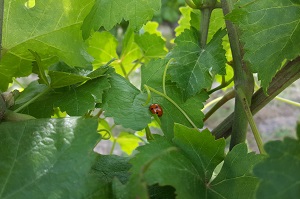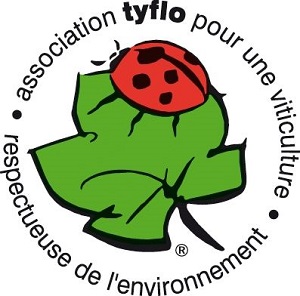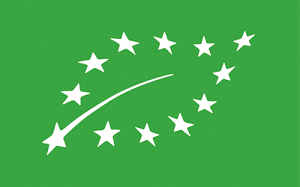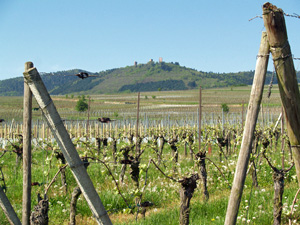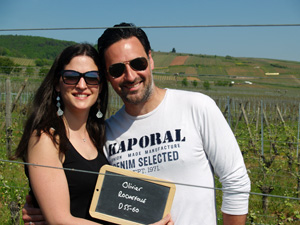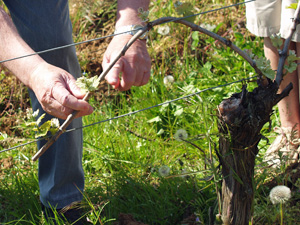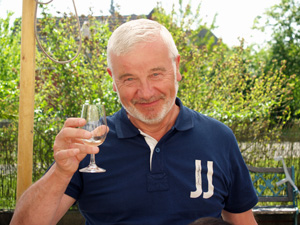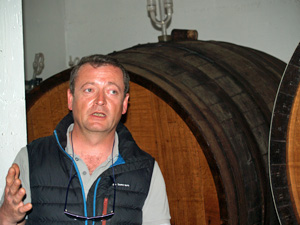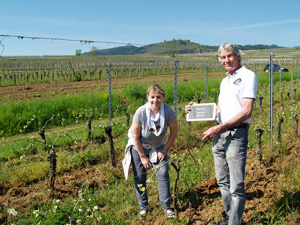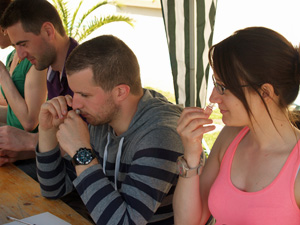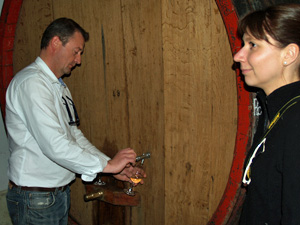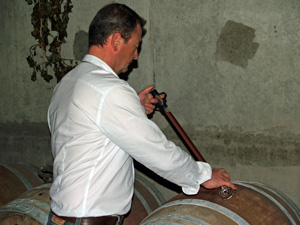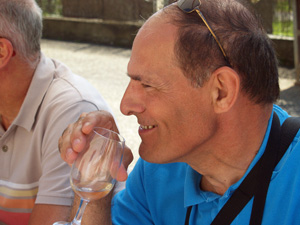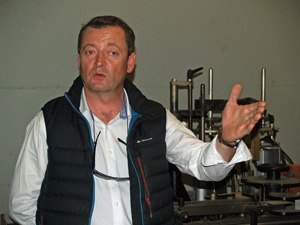De-budding the vines in the Côtes du Rhône
- Categories :
- Wine Making
- Domaine la Cabotte
- Côtes du Rhône
Over a welcome coffee, Eric and Marie-Pierre introduced us to the day. On the agenda was some work in a nice plot of Mourvèdre vines, where we would have a go at de-budding.
Our hosts explained how to de-bud, and then in pairs, we got stuck in. The demonstration that Eric gave us looked fairly simple. All we had to do was to remove some of the unwanted shoots to help control the yield that each vine will produce.
But when you have to do it yourself, it's not quite as easy as it appears. No two vines are the same, and you end up asking yourself lots of questions. Is this shoot the one that needs to be removed? We didn't yet have Eric's expert eye. We de-budded a couple of rows each, which took us a little more time than it would have done Eric!
Eric then took us on a walk through the vineyard, explaining on the way a whole host of things such as why some vines were pruned using the "gobelet" method and others using the "cordon de royat" technique.
We took a little detour so that Eric could show us the biodynamic preparations that they use on the vineyards, notably the biodynamic cow manure compost, which nature transforms from a foul smelling matter into rich compost that encourages the microbial life in the soil. After a couple of weeks this compost is put into cow horns and then buried for a few months before being diluted and dynamised with rain water before being sprayed throughout the vineyard. Then the magic does its work!
Back at the winery, a nice cool aperitif awaited us in the shade of the trees. We tasted a 2015 Côtes du Rhône rosé and a Côtes du Rhône red wine from the same year. Marie-Pierre presented the wines, explaining their blends and how they had been worked in the chai.
Marie-Pierre than invited us to sit down for an al fresco lunch that she had freshly prepared: a lentil salad, tomatoes and pumpkin seed salad, duck and nut terrine, local goats cheese and a delicious cake. During the meal we tasted the range of wines that are produced at the winery, the "Garance" and "Gabriel" Côtes du Rhône Villages Massif d'Uchaux wines and the Châteauneuf-du-Pape 2014 red.
After lunch, we went to meet our Gourmet Odyssey adopted vines, giving us the chance to immortalise the moment by taking a few photos. Eric then told us about the specificity of the Uchaux terroir and how it differs from other areas in the Rhône valley.
We then headed to the chai, where Eric briefly explained how the wine is vinified and the differences between the biodynamic methods they use from conventional. He showed us some of the plants that are used to make the treatments such as horse tail and fennel. He told us how the dynamiser works and the impact of the different biodynamic treatments on the vineyard.
The 2016 harvest is still a long way off, but the day enabled us to better appreciate the importance of the preparative work that is done beforehand throughout the year by Eric, Marie-Pierre and their son Etienne to ensure the best possible grapes.
The path is still long before we can taste the "Garance" 2016 wine, and we'll have to be patient, whilst hoping that Mother Nature is as kind as it was in 2015. Warm thanks to Marie-Pierre and Eric for their generous welcome and to all of the participants for a great day!



